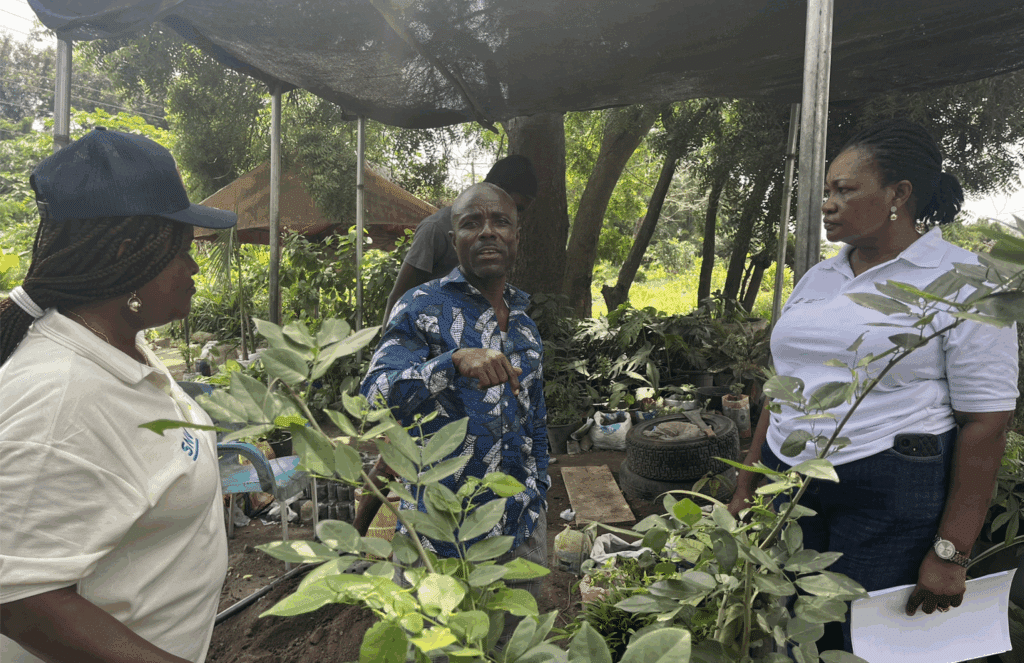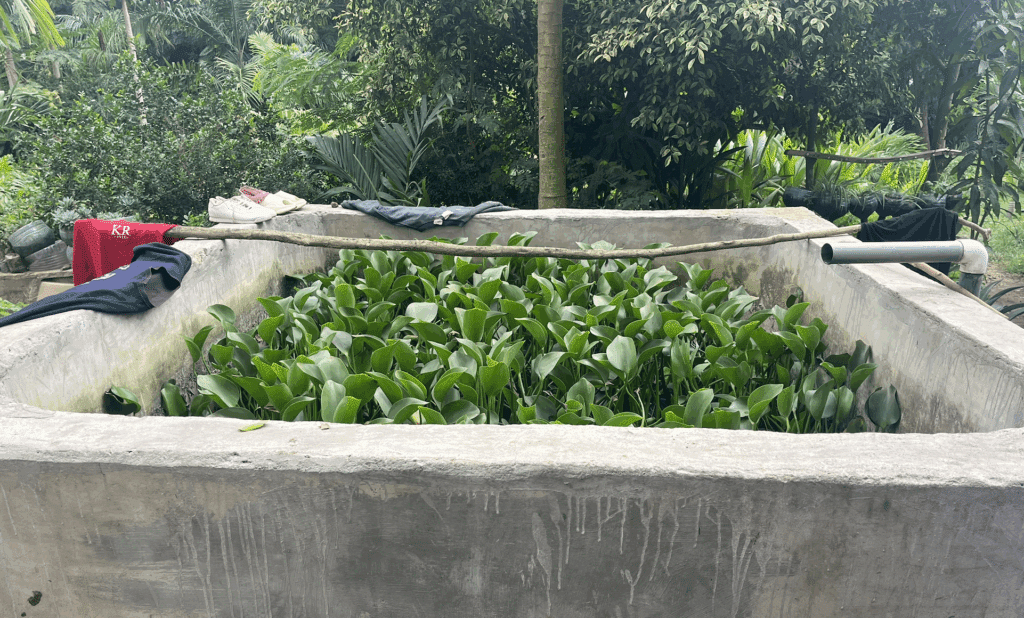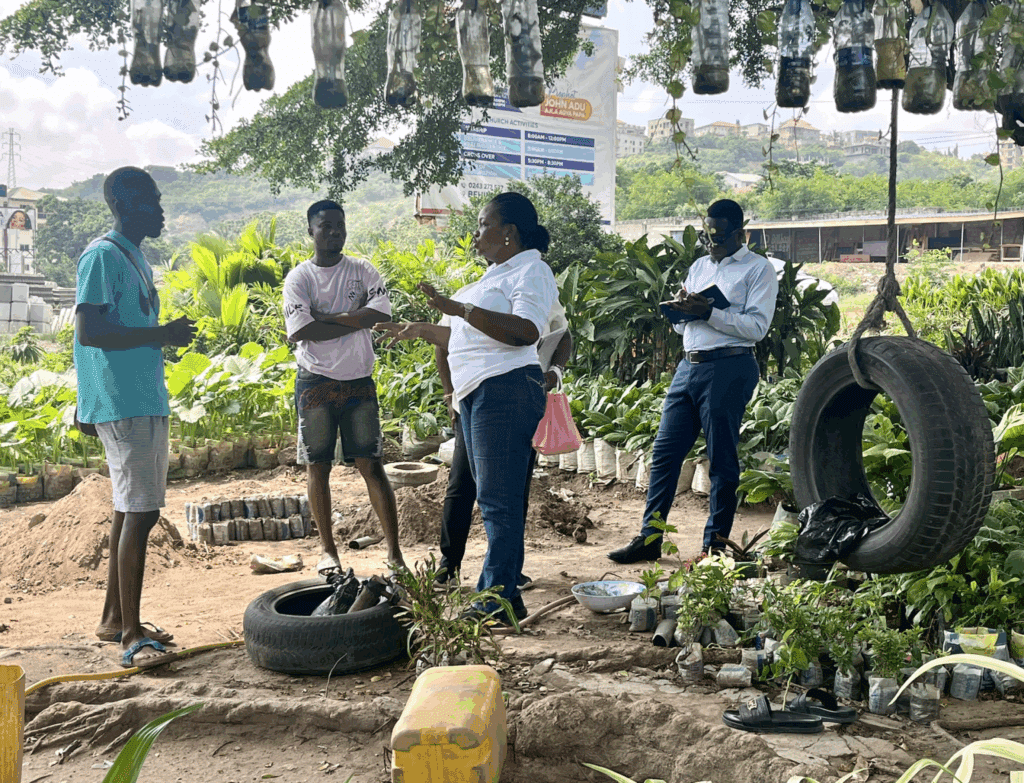The Environmental Protection Agency (EPA) has warned against the potting of water hyacinth due to its harmful impact on Ghana’s freshwater ecosystems Mrs. Jewel Kudjawu, Director of the Inter-sectoral.
Network Department at the EPA, issued the caution during a public awareness campaign that involved visiting horticulturists in parts of Accra. “This plant is alien to Ghana’s natural ecosystems and has no biological enemies here to naturally suppress its spread, she explained.

“Even more concerning is its seed dormancy. The seeds can lie hidden in river sediments for up to 20 years and germinate much later, making eradication extremely difficult,” she added.
“The public must see this as a shared responsibility,” Mrs. Kudjawu emphasised.
“Do not plant, pot, or propagate water hyacinth. Report sightings and help protect our rivers for future generations,” she said.
The aquatic plant, scientifically known as Eichhornia crassipes, is not native to Ghana and has become a fast-spreading invasive species.
The water hyacinth, known for its floating purple blooms and bulbous leaf stalks, thrives in nutrient-rich water and can double in mass in less than two weeks
It forms dense mats that block sunlight, prevent oxygen transfer, and suffocate aquatic life.
It is increasingly clogging rivers, degrading water quality, obstructing transport routes, and threatening biodiversity, particularly in lakes and rivers in southern and middle Ghana.
Madam Helina S. Dodd, Principal Programme Officer at the EPA’s Natural Resources Department, advised the public to avoid reintroducing the plant into waterways and to dry and burn any harvested plants to prevent re-growth.
“People often pot them for decoration in homes or ponds without realising they’re contributing to a national problem, she said

“Along the Volta Lake, River Tano, and parts of the Oti River, fishing communities are already suffering, nets come up empty, and boat travel is being blocked.
Madam Dodd warned that the plant’s spread is worsened by climate change, poor waste management, and fertiliser runoff from farms, which enrich water bodies and accelerate its growth.
“Water hyacinth is not just a nuisance; it’s an ecological time bomb,” Madam Dodd stressed. “Its resilience and ability to hibernate as seeds make it a persistent threat unless tackled comprehensively.”
Mr. Isaac,Billions, a Horticulturist, thanked the EPA and assured that the association would take steps to ensure that members desist from potting water hyacinth
Currently, Ghana employs manual removal and occasional herbicide spraying to manage infestations, but these methods are costly and often short-lived
The EPA and the Water Resources Commission are calling for increasaed investment in research, early detection systems, and possible biological control options that could offer long-term solutions.




